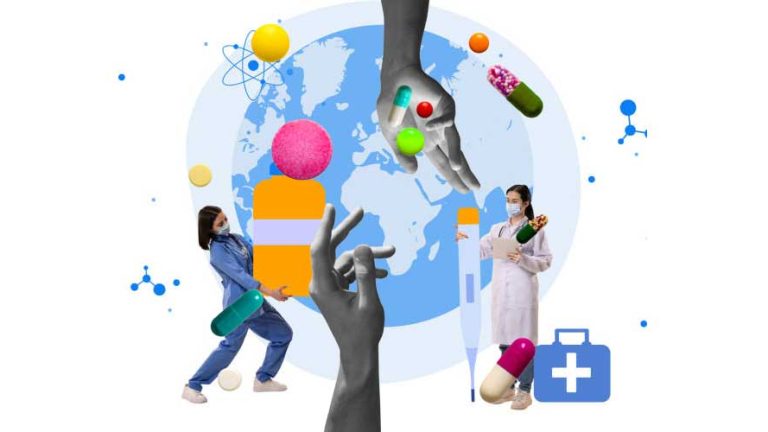Women pioneers have changed the medical field. Top 10 women in medicine you should know
With the exception of nursing and midwifery, women in medicine have historically been barred from the fields of science and medicine, but there are a few rare exceptions that date back to ancient times. The women pioneers who have shaped medical history have influenced not just how women can get degrees in medicine and employment, but also how people are treated all around the world.
These 10 female doctors paved the path for more equitable living conditions for everyone and for women in the medical field.
1. Elizabeth Blackwell (1821-1910)
Elizabeth Blackwell, the first American woman to earn a degree in the medical field, is credited with inspiring a large number of today’s female doctors. Elizabeth overcame many challenges on the way to medical school and persisted in her struggle after graduating for women’s access to such a programme. In New York City, she founded a women’s medical college.
2. Rebecca Lee Crumpler (1831-1895)
After earning her medical degree from New England Female Medical College in 1864, Rebecca Lee Crumpler became the first doctor of African American descent. Outside of her book, “Book of Medical Discourses,” one of the earliest medical works by an African American, little much is known about her. Together with other African American doctors, Rebecca provided care for emancipated slaves who, absent their care, would not have had access to healthcare.
3. Susan La Flesche Picotte (1865-1915)
Susan La Flesche Picotte was the first American Indian to get a doctorate, and her academic career would not have been feasible without the federal financing for professional education that she was the first to acquire. As a little child, Susan saw a local Indian woman perish because a white doctor refused to treat her. Susan was motivated by this experience to seek her medical degree so she could help people and advocate for the living circumstances of American Indians.
4. Mary Edwards Walker (1832-1919)
Only one woman out of the more than 3,500 recipients of the Medal of Honor was a woman. Due to her valiant deeds as the first female surgeon in the Army, Mary Edwards Walker became the first and only woman to be awarded the Medal of Honor. Mary fought to find a chance to serve her nation and eventually joined the Civil War. Before putting her life in danger as a frontline surgeon, she helped wounded soldiers as a nurse.
5. Gerty Cori (1896-1957)
Gerty Cori, a Prague native, graduated with a degree in medicine from the German University of Prague’s Medical School. Gerty spent several years working as a biochemistry professor and co-researching with her spouse. The enzymes that turn glycogen into sugar and then back into glycogen were discovered by Gerty and her husband, who shared the 1947 Nobel Prize in Physiology or Medicine.
6. Virginia Apgar (1909-1974)
Virginia Apgar, who went on to become the first full professor at the Columbia University College of Physicians and Surgeons, had difficulties while pursuing a medical degree so that she could practise surgery. Virginia earned a master’s degree in public health from Johns Hopkins in 1959 and after leaving the profession of medicine she devoted her time to obtaining money for research and birth defect prevention through fundraising.
7. Audrey Evans (1925-)
Audrey Evans, who emigrated to the United States from England in search of a profession in medicine, had known since the age of five that she wanted to be a doctor. She’s been working to promote a better world ever since she earned her degree. Along with the Ronald McDonald house in Pennsylvania, Audrey was a founding partner in the 1987 launch of the Ronald McDonald camp for children with cancer.
8. Joycelyn Elders (1933-)
Dr. Edith Irby Jones inspired Joycelyn Elders to pursue a career in paediatric medicine, and after hearing her lecture, she decided to enrol in the University of Arkansas Medical School. She was named the nation’s surgeon general by President Clinton in 1993.
9. Marilyn Hughes Gaston (1939-)
She had limited access to healthcare when Marilyn Hughes Gaston’s mother passed out as a result of cervix cancer. Marilyn made the decision to become a doctor on that particular day, but because she was black and poor, she was urged not to follow her aspirations. In 1986, Marilyn released a ground-breaking study that demonstrated the value of providing SCD children with long-term penicillin medication to ward off septic infections.
10. Antonia Novello (1944-)
President George H.W. Bush appointed Antonia Novello as the first woman and the first person of Hispanic ancestry to hold the position of Surgeon General of the United States in 1990. She had a lifelong interest in medicine. From 1993 to 1996, Antonia served as a representative for the United Nations Children’s Fund after she left her position as the U.S. Surgeon General.






Add comment